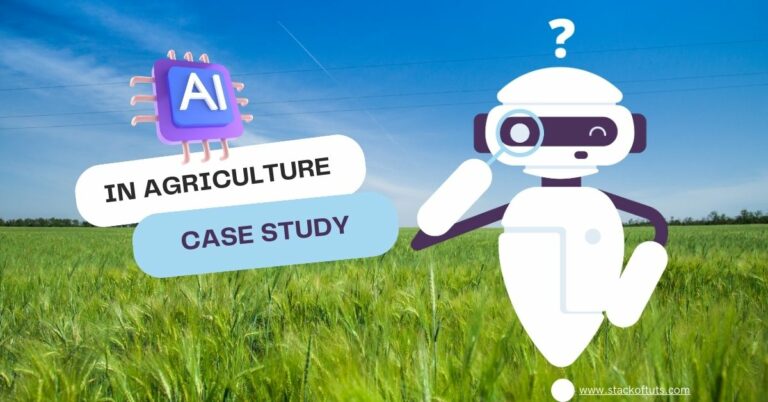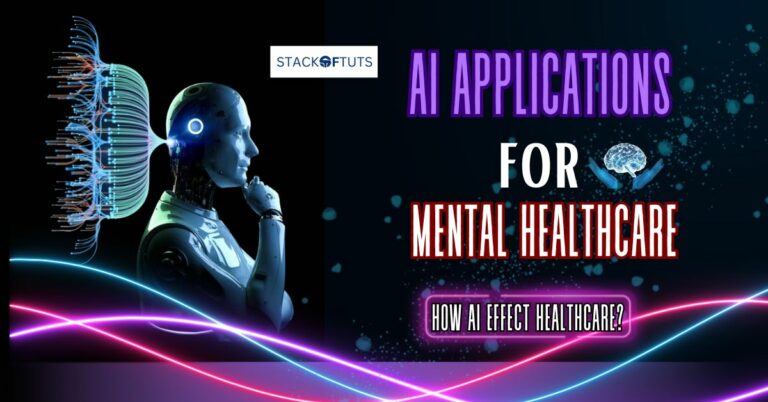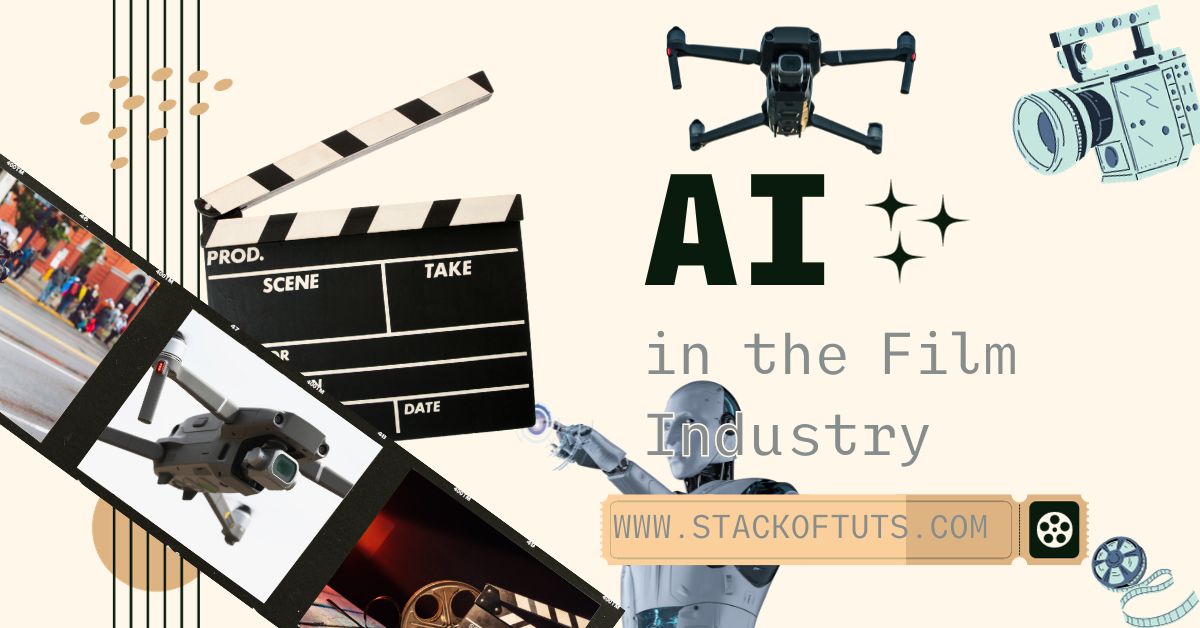
In recent years, we have seen an unprecedented surge in the integration of artificial intelligence (AI) across various industries. The film industry, with its intricate blend of creativity and technology, stands as a prime beneficiary of this revolution. From scriptwriting to post-production, AI’s footprint is expanding, reshaping the cinematic landscape in ways we could have only dreamt of a decade ago. The Role of Artificial Intelligence in the Film Industry has a big effect on how films are made.
AI in Film Production: A Game Changer
One of the primary ways AI has infiltrated the movie industry is in film production.
1. AI in Scriptwriting and Storyboarding
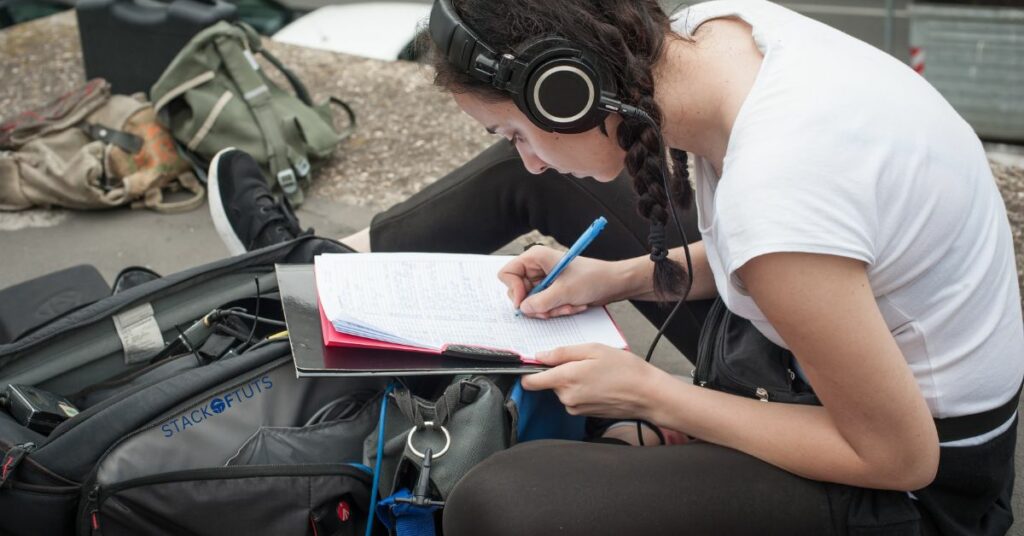
Stories are the lifeblood of films, and with the aid of AI, the way we craft these tales is undergoing a transformation. By analyzing vast databases of movie scripts, AI can now predict which narratives are likely to resonate with audiences. It offers insights into character development, plot twists, and thematic depth. Moreover, it assists in refining storyboards by suggesting visual cues, ensuring that the narrative and visuals align perfectly.
Pre-production
- Script Analysis and Development: AI algorithms can now analyze scripts to predict their potential success. By assessing dialogue, character interactions, and plot dynamics, AI offers insights into potential audience reception and areas of improvement.
- Visual Effects and Animation: The creation of realistic visual effects (VFX) and animations has always been a challenging aspect of film production. AI simplifies this process by understanding scene requirements and auto-generating detailed and intricate visuals, reducing the time and manual labor involved.
- Casting and Talent Scouting: AI-driven platforms can now sift through vast databases of actors, analyzing their past performances, and suggesting ideal candidates for specific roles. This not only ensures a perfect fit but also cuts down on scouting time.
2. Enhanced Visual Effects with AI
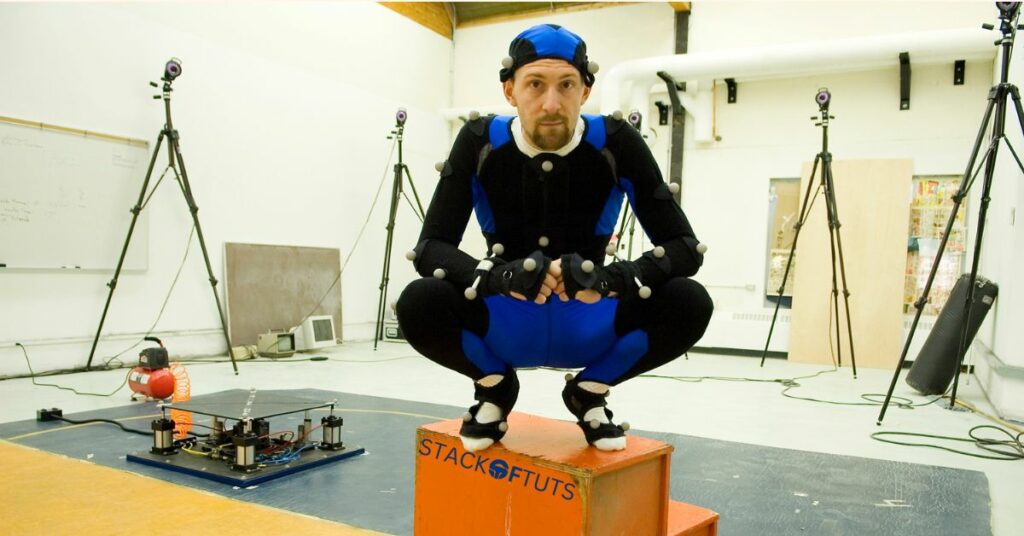
Visual effects (VFX) have always been at the forefront of technological advancements in the film industry. Today, AI algorithms are accelerating the process by which these effects are created and refined. By understanding patterns and sequences, AI can produce stunning visuals faster and more accurately than traditional methods. The outcome? More realistic CGI characters, breathtaking landscapes, and a cinematic experience that immerses the viewer like never before.
- Personalized Recommendations: Streaming platforms use AI to analyze users’ viewing patterns, preferences, and habits. This analysis enables platforms to suggest films that align with viewers’ tastes, ensuring a tailored cinematic experience.
- Interactive Storytelling: Some platforms are experimenting with interactive film narratives where viewers make choices that influence the plot. AI plays a crucial role in processing these choices in real-time, creating seamless transitions and a unique storytelling experience.
3. Sound Design and Audio Optimization
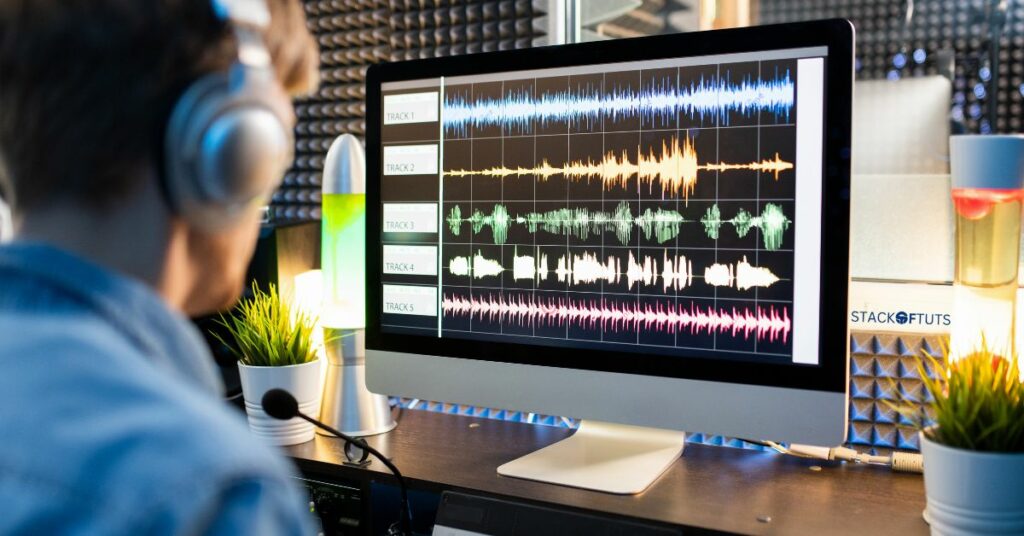
Sound is a pivotal component of the cinematic experience. With AI, sound engineers can achieve new heights in auditory precision. Artificial intelligence algorithms analyze different sound wavelengths, ensuring optimal clarity and pitch. From the faintest whisper to the loudest explosion, every sound detail is enhanced, providing an aural experience that is both rich and resonant.
Sound engineering, an often-overlooked aspect of film-making, has also reaped the benefits of AI.
- Sound Editing: AI can detect and correct audio discrepancies in films, ensuring clear dialogue and balanced background scores. This technology aids in creating a perfect auditory experience for viewers.
- Score Creation: Some filmmakers are turning to AI to compose background scores. By analyzing the film’s mood, tone, and pace, AI can generate music that complements and elevates the viewing experience.
4. Automated Film Editing
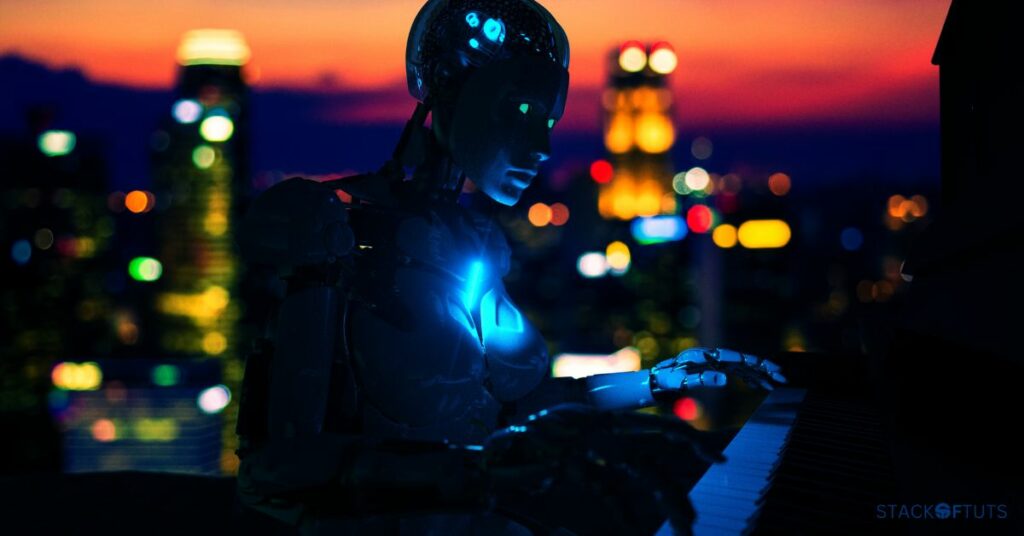
Film editing, once a tedious and time-consuming process, is being revolutionized by AI. Automated editing tools can now assess hours of footage, selecting the best shots based on predefined criteria. They can even align these shots with the soundtrack, ensuring that both the visual and auditory elements synchronize seamlessly. This not only expedites the post-production process but also ensures a final product that resonates deeply with its audience.
5. Audience Analysis and Film Marketing
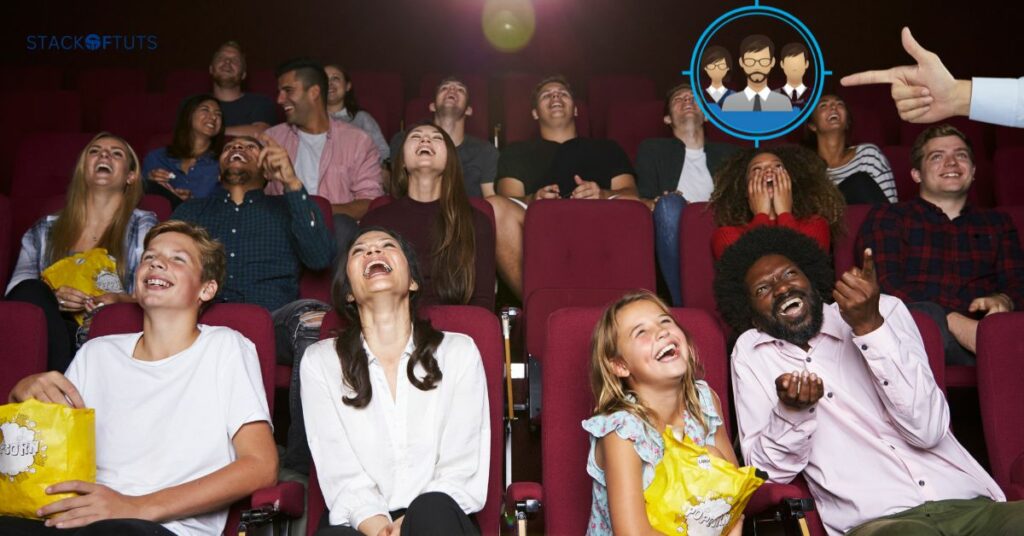
AI plays a pivotal role in understanding audience preferences. By analyzing viewing patterns, social media trends, and box office data, AI can predict which films are likely to be hit. Furthermore, it assists filmmakers in tailoring their marketing strategies, ensuring that promotional content reaches the right audience at the right time.
6. Personalized Viewing Experiences
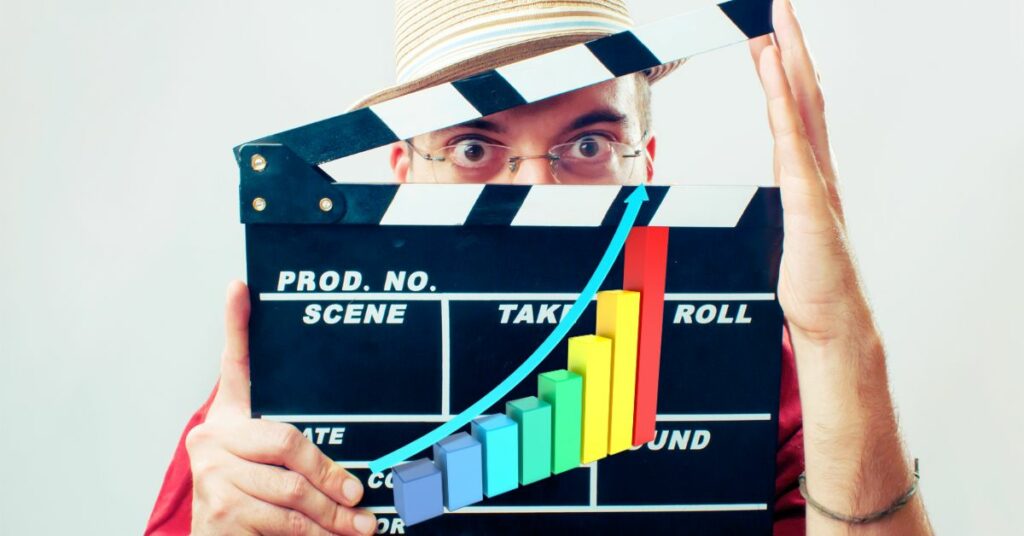
One of the most groundbreaking contributions of AI to the film industry is the creation of personalized cinematic experiences. Algorithms analyze individual viewing patterns and preferences, curating a list of films tailored to each viewer. This not only enhances viewer satisfaction but also boosts the potential revenue for filmmakers and streaming platforms.
7. Marketing and distribution

The Role of Artificial Intelligence in the Film Industry plays a pivotal role in Marketing and Distribution
- Trailer creation: AI can be used to create trailers that are tailored to specific audiences.
- Social media marketing: AI can be used to create and distribute social media marketing campaigns that are more effective.
- Audience analysis: AI can be used to analyze audience data to identify trends and preferences. This information can be used to make better decisions about which films to produce and how to market them.
The future of AI in the film industry
AI could transform the film industry, but it’s still developing. AI will be used in filmmaking in new and imaginative ways as technology improves.
Here are some film industry AI predictions:
- AI-written scripts: AI could eventually compose screenplays as good as or better than humans. Another generation of entertaining and thought-provoking films may result.
- AI-directed films: AI could eventually be used to direct films. This would allow filmmakers to focus on the creative aspects of filmmaking while leaving the technical aspects to AI.
- AI-generated films: AI could eventually be used to generate entire films, from script to screen. This would democratize filmmaking and allow anyone to create a film, regardless of their budget or experience.
FAQs
Absolutely, artificial intelligence aids film production through script optimization, advanced visual effects, and targeted audience insights.
The future of AI in film involves deeper personalization, more advanced visual storytelling, and collaborative human-machine creativity.
AI is transforming Hollywood by optimizing script development, enhancing visual effects, and personalizing audience experiences.
Yes, Hollywood is utilizing AI for tasks like script analysis, visual effects enhancement, and audience engagement predictions in movie-making.
Conclusion
The Role of Artificial Intelligence in the Film Industry has a major impact on filmmaking. It improves creativity, technical proficiency, and audience involvement. We should expect a highly enhanced and audience-resonant cinematic landscape as AI evolves. In this brave new future, AI leads the worldwide film business to a golden age.
Thanks!
